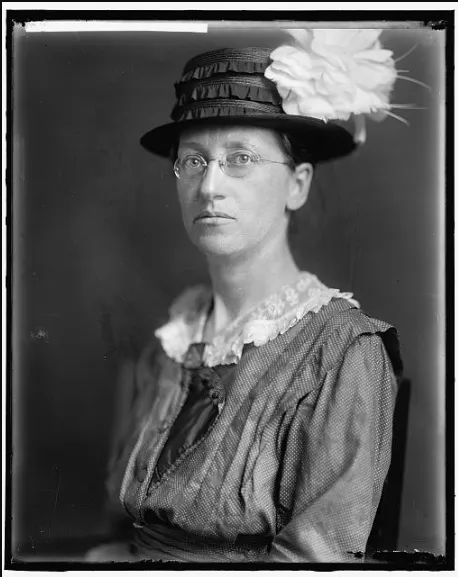I was recently scanning the Library of Congress Digital Archives and came across an unfamiliar sociologist. As I was scanning records I found a Library of Congress Blog about Emily Greene Balch.
In their blog they give a pretty good biography of Balch’s life and career as a sociologist and activist. They state:
“Balch began her career as a faculty member at Wellesley College in 1896 and became a full professor in 1913. As an academic, Balch studied immigration, poverty, wars, and the economic role of women. Balch developed and taught courses in economics and sociology—emphasizing the combination of library research as well as primary research in the form of on-site investigations to formulate independent judgement (Davis and Selvidge, 2016, 71). Balch also served on state municipal boards and city commissions, and helped found the Women’s Trade Union; however, she was better known for her involvement in activist movements for racial justice, women’s suffrage, child labor, working conditions, fair wages, and, in particular, the pursuance of peace.”
Emily Greene Balch, Life and Career
Balch was born in Boston Massachusetts on January 8, 1867. She earned her education at Bryn Mawr College, a member of the first graduating class in 1889. Balch finished her studies by traveling and taking coursework in France, Chicago, Harvard, and Berlin.
Emily Greene Balch the Teacher
As a teacher, Balch’s career is summarized by Nobelprize.com in the following way,
“In 1896 she joined the faculty of Wellesley College, rising to the rank of professor of economics and sociology in 1913. An outstanding teacher, she impressed students by the clarity of her thought, by the breadth of her experience, by her compassion for the underprivileged, by her strong-mindedness, and by her insistence that students could formulate independent judgments only if they combined on-the-spot investigation with their research in the library.”
Emily Greene Balch and Jane Addams
In 1915, Balch attended the International Congress of Women, where she was an active participant and worked with Jane Addams to write the final report of the preceding.
“Balch, Emily Greene, with Jane Addams and Alice Hamilton, Women at The Hague: The International Congress of Women and Its Results. New York, Macmillan, I9I5.” – Citation for Final Report of International Congress of Women
Emily Greene Balch the Pacifist
Emily Balch found a cause worth fighting for when she began advocating for Nazi victims. She fought so hard for anti-war and peace causes that she was released from her job at Wellesley. She literally spent the rest of her life advocating for peace.
“Even after receiving the Peace Prize in 1946 at the age of seventy-nine, Miss Balch continued, despite frail health, to participate in the cause to which she had given her life. She maintained her association with the WILPF, acting often in an honorary capacity; in 1959 she served as a co-chairman of a committee to mark the centenary of the birth of Jane Addams, a good comrade of days past and herself a winner of the Peace Prize (for 1931).”
Final Thoughts on Sociologist Emily Greene Balch
Balch was known as a feminist, and advocate for peace, a supporter of the working class, and an early proponent of racial equality. Based on Balch’s record, it is amazing that she is not more recognizable to sociologists. I have never heard her name, even in courses or discussions specific to historical feminist thinkers. The fact that she is a Nobel Peace Prize winner makes the fact even more astonishing. So, if you are unfamiliar with sociologist Emily Greene Balch, Below are a few links to get you started. Happy reading!







